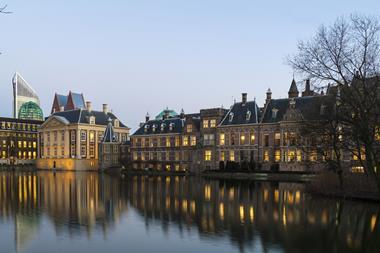The Dutch Investment Institute (NLII) has called on its government to step up efforts to create profitable local-economy investment opportunities for institutional investors.
In an open letter to lawmakers, Loek Sibbing, chief executive at the NLII, said there were far too few attractive projects in the Netherlands and called for a dedicated organisation to co-finance projects and make them “investment-ready”.
He argued that, “even if €10bn of institutional assets were instantly available” to finance offshore wind farms, schools and thermal grids, “the money would remain unspent”.
He singled out projects that were part of the transition to sustainable energy generation as being particularly well suited for institutional investors.
“Management-consulting firm McKinsey recently concluded that, in the Netherlands, €200bn of investment is needed over the next 20 years,” Sibbing said.
“Because pension-fund participants want their schemes to [embrace] sustainability, the funds are keen to invest in such things as energy-efficient housing, cleaner engines for inland shipping, wind farms and thermal grids.”
Sibbing also advocated a “robust government organisation with the leeway to launch and guide well-designed projects in an entrepreneurial fashion”.
He added: “A decisive body, with its own assets and skilled staff, would carry weight with local government and semi-public institutions and therefore be able to speed up projects.”
He said the organisation should also have risk-bearing public funds available to make initially unprofitable investments and cover risks.
He said that just such a concept – called P3 – was already operating successfully in Canada.
Since last year, the NLII – an initiative launched by Dutch institutional investors – has established two funds for SME investments, as well as a fund for investments in care property.
Its corporate-loans fund (BLF) has already raised €480m of its €500m target, with €180m invested and €140m in the pipeline.
Investors have also committed €100m to the NLII’s subordinated-loans fund (ALF), which has a target of €300m.
SPH, the €9.5bn occupational pension fund for general practitioners in the Netherlands, has committed €80m to NLII’s care property fund.
Sibbing said €14m had now been invested in the Apollo Zorgvastgoedfonds, with €110m of concrete projects remaining.
Elsewhere, Dutch labour party PvdA said in its election manifesto that it wanted pension funds to invest at least 20% of their assets locally, while the liberal democrat D66 said it wanted “a new public merchant bank that links existing government expertise and budget with assets that are available – from pension funds, for example”.









